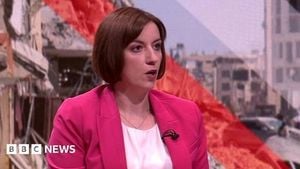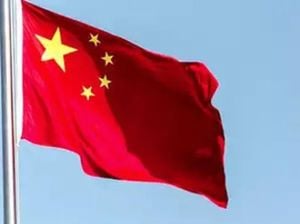On September 15, 2025, the political landscape in South Korea was rocked once again by the lingering aftershocks of a dramatic physical altercation that took place at the National Assembly more than six years ago. Prosecutors, in a move that drew fierce backlash from opposition leaders, requested prison sentences for nearly a dozen lawmakers affiliated with what is now known as the People Power Party (PPP), formerly the Liberty Korea Party (LKP). The incident, which unfolded in April 2019, continues to reverberate through the country’s political corridors, raising questions about the boundaries of political protest, the impartiality of legal institutions, and the future of South Korean democracy.
According to Yonhap News Agency, the Seoul Southern District Court is set to deliver its verdict on November 20, 2025, finally bringing closure to an episode that saw rival parties file a staggering 18 complaints against one another. The charges ranged from assault and obstruction of business to defamation, all stemming from the chaotic efforts by LKP lawmakers to physically block the passage of a package of reform bills. Among these was legislation to establish an independent agency tasked with investigating corruption among high-ranking government officials—a move that, at the time, was championed by the then-ruling Democratic Party in cooperation with minor opposition blocs, including the center-right Bareunmirae Party.
The prosecution’s requests were anything but lenient. For Rep. Na Kyung-won, who served as the LKP’s floor leader during the 2019 incident, prosecutors sought a two-year prison sentence. Hwang Kyo-ahn, the party leader at the time and now head of the Freedom and Innovation party, faced a proposed term of one year and six months. Song Eon-seok, the current PPP floor leader, was targeted for a 10-month prison sentence and a fine of 2 million won (approximately US$1,440). The sentences, if handed down as requested, would mark a severe rebuke to the opposition’s leadership and could set a powerful precedent for how South Korea deals with legislative disruptions.
The PPP’s response was swift and scathing. Meeting with reporters at the National Assembly, party leader Jang Dong-hyeok didn’t mince words, declaring, "The prosecution has become a handmaid of power and sought unimaginably heavy sentences for opposition lawmakers, and, considering the conduct and nature of the offenses, the prosecution’s requests this time are by no means balanced." According to The Korea Herald, Jang went further, framing the 2019 resistance as nothing less than a patriotic stand: "This power says it will dismantle the prosecution, yet the prosecution is still playing the role of a handmaid before power, and, for the Democratic Party to save itself alone by eliminating the opposition, extending its rule, and turning the Republic of Korea into a one-party dictatorship, the prosecution is also going along with that ambition."
Jang’s comments echoed a broader sentiment among PPP lawmakers, many of whom see the prosecution’s actions as politically motivated. The party planned to hold an emergency general meeting on September 16, 2025, to strategize responses not only to the indictments but also to what they perceive as mounting pressure from the ruling party on the judiciary. At the heart of this tension is the Democratic Party’s push for Chief Justice Cho Hui-dae to resign and the controversial proposal to establish a court division dedicated specifically to insurrection cases. These moves, PPP members argue, represent a direct threat to the Constitution and the principle of separation of powers.
"It’s a declaration of war to turn the country into a dictatorship," said lawmaker Na Kyung-won during a press conference held by PPP members of the Legislation and Judiciary Committee. The group didn’t hold back, describing the Democratic Party’s actions as a "frontal challenge to the Constitution and the separation of powers." Such rhetoric, while heated, reflects the deep mistrust that now characterizes relations between South Korea’s two main parties.
But what exactly happened on that fateful day in April 2019? According to Yonhap, the then-ruling Democratic Party, together with minor opposition groups, attempted to fast-track a set of reform bills. The most contentious of these aimed to create an independent agency to investigate corruption among high-level officials—a proposal that the LKP viewed as a direct threat to its interests. In a dramatic escalation, LKP members physically tried to block the legislative process, culminating in the confinement of Rep. Chae Yi-bae of the Bareunmirae Party in his office for five hours. The spectacle of lawmakers engaging in such open confrontation shocked the nation and led to the flurry of criminal complaints that have only now reached their legal denouement.
During the September 15, 2025, hearing, Na Kyung-won maintained her innocence, denying the allegations and insisting that the clash was not illegal violence but rather a form of "routine and legitimate political activity." Her defense resonates with many in the PPP, who argue that robust dissent—even if it means pushing the boundaries of parliamentary decorum—is a vital safeguard against unchecked executive power.
Yet, the Democratic Party and its allies see things differently. For them, the events of 2019 crossed a line, undermining the rule of law and the orderly functioning of the legislative process. The push to create a court division dedicated to insurrection cases and the pressure on Chief Justice Cho Hui-dae are, in their view, necessary steps to prevent future disruptions and to ensure that those who flout the law are held accountable, regardless of their political standing.
The stakes in this legal and political showdown are high. If the Seoul Southern District Court hands down the requested sentences on November 20, it could reshape the opposition’s leadership and signal a new era of judicial assertiveness. On the other hand, a more lenient verdict might embolden future acts of parliamentary resistance, raising the specter of further legislative gridlock and confrontation.
For ordinary South Koreans, the spectacle is both familiar and exhausting. Political clashes, legal battles, and accusations of overreach have become recurring features of the country’s democracy. Yet, beneath the noise, the core questions remain: How far should lawmakers go in opposing policies they believe are wrong? When does protest become obstruction—or even insurrection? And who gets to decide where that line is drawn?
As the November verdict approaches, all eyes will be on the court’s decision and the subsequent responses from both sides of the aisle. The outcome will not only determine the fate of the individuals involved but also set the tone for South Korea’s political culture in the years to come. With the country’s democratic institutions under scrutiny, the fast-track trial has become a litmus test for the balance between robust opposition and the rule of law.
Whatever the verdict, one thing is clear: South Korea’s democracy, for all its challenges and imperfections, remains fiercely contested—both inside and outside the courtroom.



